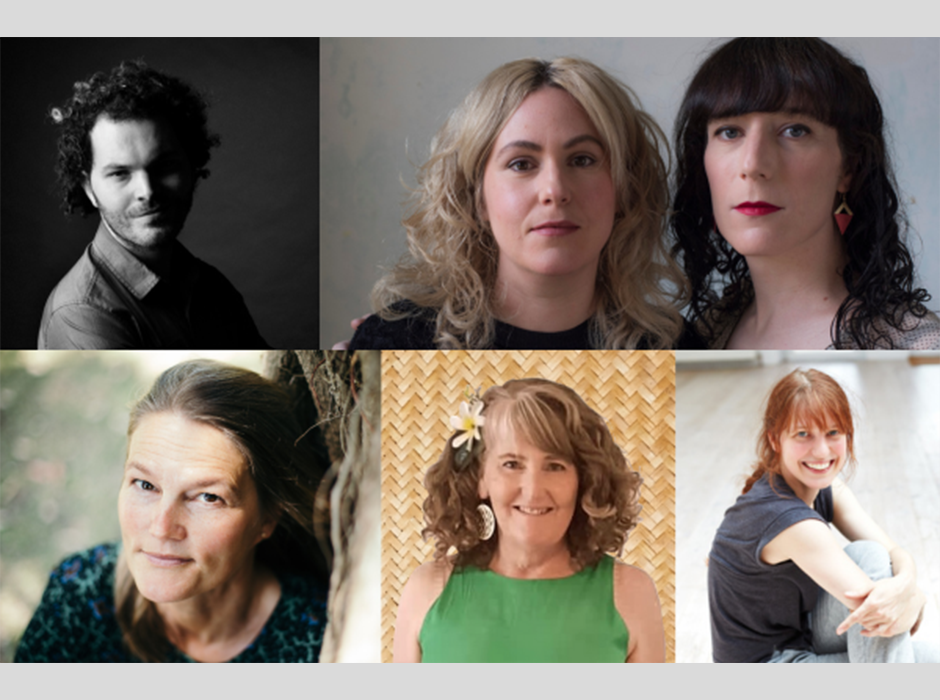
Clockwise from top left: Dr Simon Eastwood, Amanda Fauteux and Miranda Bellamy, Marcela Giesche, Feana Tu’akoi and Mikaela Nyman.
The recipients of the University of Otago’s prestigious Arts Fellowships for 2024 have been selected.
Te Kete Aronui Division of Humanities Pro-Vice-Chancellor Jessica Palmer is pleased to announce the successful candidates.
The Mozart Fellow is Dr Simon Eastwood. The Frances Hodgkins Fellowship is shared by collaborative duo Miranda Bellamy and Amanda Fauteux. The Caroline Plummer Fellow in Community Dance is Marcela Giesche. The Otago College of Education Creative New Zealand Children’s Writer in Residence is Feana Tu’akoi. The Robert Burns Fellow is Mikaela Nyman.
“It is a privilege and a pleasure to be able to support artists through these fellowships, and to bring them into our university and wider community,” Professor Palmer says.
“Collaboration and engagement are themes throughout the successful applicants’ proposed plans for their time here. This creates fantastic opportunities in Ōtepoti and it will be stimulating to see our communities and our places through their creative lenses.”
The Fellows receive a stipend for between six months and one year and space at Otago’s Dunedin campus to pursue their creative projects.
The Mozart Fellow 2024 is Dr Simon Eastwood
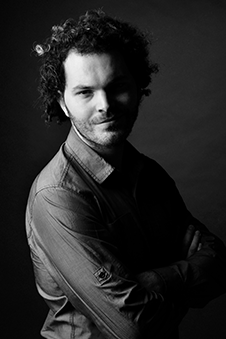
Dr Simon Eastwood
Dr Simon Eastwood is a composer, bass player and music educator.
“I am extremely excited to accept this appointment and to be able to dedicate an entire year to composing full-time,” he says.
Interdisciplinary collaboration is a core feature of Dr Eastwood’s practice, and will be part of his Fellowship.
“I intend to spend much of the year writing chamber music including pieces for piano trio, saxophone, and works for percussion as well as collaborations between music and the visual arts.
“I also want to leave time to find new connections, explore, and forge new collaborations as a composer and improviser.”
Dr Eastwood is a passionate teacher to musicians both young and old. He also serves as an advocate for new music: he is the current President of the Composers Association of New Zealand.
Currently based in Pōneke Wellington, Dr Eastwood has achieved international success working with world-class musicians and attending residencies and festivals around the globe.
These successes include representing New Zealand at the 2019 International Society for Contemporary Music New Music Days in Estonia where his piece Interference was performed by Kadri-Ann Sumera and Talvi Hunt. His work Where the River Flows... was performed by Corvus in New York's Federal Hall following the 2019 Composing in the Wilderness programme in Alaska.
In 2020, a collaboration with visual artist Lisa Munnelly Resurfacing was exhibited in Detroit and Wrocław. In 2021, GRAMMY-nominated percussionist Justin DeHart included his set Silver Wind, Golden Earth, White Water on Landfall, a collection of New Zealand percussion music released by Rattle Records.
Closer to home, Dr Eastwood has had works programmed by the NZSO, Stroma, and the Adam Chamber Music Festival, and established strong connections with local artists, including improvisers and taonga pūoro musicians.
“Although much of my formal training has been in classical music, my musical interests are very diverse. I frequently perform in rock and folk groups, chamber ensembles, and orchestras in addition to performing as an improvising musician.”
The Frances Hodgkins Fellowship is shared by Miranda Bellamy and Amanda Fauteux
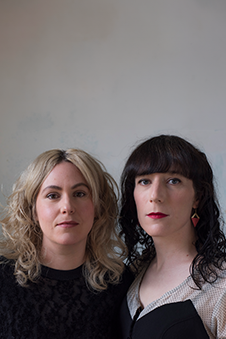
Miranda Bellamy and Amanda Fauteux
This is the first time this Fellowship has been awarded to more than one person. Miranda Bellamy and Amanda Fauteux have been collaborating since 2019 and intend to approach the work of the Fellowship equally; working together on all aspects from initial concept development and research through to outreach activities, production, and the presentation of the final exhibition.
“It's an honour to be selected as the Frances Hodgkins Fellows. We recognise the incredible legacy of the Fellowship, built by so many outstanding artists. We are very proud and excited to have the opportunity to contribute to this in a new way as the first collaborators to be awarded the Fellowship,” say Bellamy and Fauteux in a joint statement.
In their work, these Ōtepoti Dunedin-based artists identify and extend the stories of plants and rocks through site-specific research and experimentation.
Working with sculpture, installation, photography, video, audio, and printed matter they reflect on material accountability, reciprocity, ways of seeing, and the critical review of human and particularly settler-colonial histories.
During their joint tenure, they will extend their research on the electrical biodata of plants - measuring an individual plant’s electrical response to their environment.
They aim to learn more about emerging studies on plant communication and develop ways of sonifying or otherwise interpreting these new discoveries into interdisciplinary and particularly sculptural works.
They are excited to collaborate across disciplines within the University.
“We have already experienced such generosity from the University community in researching and developing past projects, and we can't wait to be embedded in the context of such innovative and esteemed knowledge and research.”
The 2024 Caroline Plummer Fellow in Community Dance is Marcela Giesche
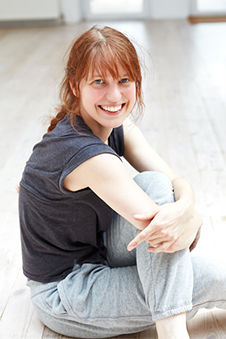
Marcela Giesche
Marcela Giesche is a freelance choreographer, performer, curator, researcher, dance teacher and artistic director of her own dance venue LAKE Studios Berlin in East Berlin.
She has presented her choreographic work and shared her movement techniques across Europe, South and North America in schools, universities, festivals, companies, and dance studios to professionals and amateurs alike.
One of the main goals in her art making is to bring contemporary dance out of its bubble and make it more accessible to the general public.
“I wish to open as many different minds and bodies to the transformative and communicative power of movement as possible,” she says.
As part of her project during the Fellowship, Giesche will be reaching out to members of diverse communities all over Ōtepoti Dunedin, weaving them together into a moving self-portrait of the city.
“I have always been fascinated by Aotearoa – New Zealand, and in the process of searching, I found myself very attracted to the smaller arts scene accompanied by the university setting of Ōtepoti – Dunedin.”
Giesche will be able to combine many of her skills as a facilitator of community dance workshops, as a creator/choreographer, and curator and host, with supportive events for the community and the University.
She aims to work practically and theoretically with students, teachers, and researchers in diverse fields of study including Sciences, Information Technology, Humanities and the Arts to raise awareness of, and stimulate the exchange of diverse knowledge: “One of the things I find most inspiring about being hosted within a university environment, is the possibility for what I like to refer to as ‘cross pollination’”.
Giesche feels a connection with Caroline Plummer in their celebration of diversity and a motivation to connect community through dance.
“I was very touched to get to know about Caroline Plummer’s work and her lasting legacy and support for the continuous development of dance in the communities of Ōtepoti Dunedin.
“It is an inspiring example of how one person can make a long-lasting difference through their visions, and I feel grateful for the possibility to be able to share my work under the name of this Fellowship and what it stands for.”
The Otago College of Education Creative New Zealand Children’s Writer in Residence Fellow 2024 is Feana Tu’akoi
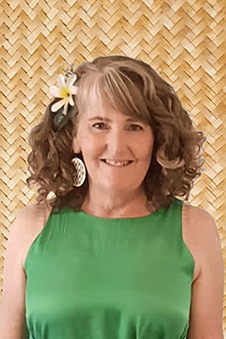
Feana Tu’akoi
Feana Tu’akoi is a Kirikiriroa Hamilton-based writer, with a long career in the field of children’s writing.
“When our four children were pre-schoolers, nearly all children’s fiction was Pālangi-centric. I couldn’t find any books that included Tongan characters, Tongan ideas, Tongan situations or even Tongan legends,” she says.
“As far as books were concerned, kids like ours didn’t exist. Our fānau needed to see themselves represented in print, to access stories about people and situations that made sense to them and to understand that these stories matter. So, in 1997, I started writing them.”
During her Fellowship, Tu’akoi intends to write her first mystery adventure; potentially book one of a series.
“I’d like to write the type of story I loved most as a child, but situate it firmly in a fāmili like ours, weaving through some of the ideas that continue to impact us.”
This Fellowship will be somewhat of a homecoming for Tu’akoi, who grew up in Te Wai Pounamu.
“I’m especially looking forward to being back on the mainland, as I grew up in Temuka and had lots of holidays in Ōtepoti Dunedin. I’m excited to reintroduce myself to the city and to explore local tourist spots – all in the name of research, of course.”
Tu’akoi has a strong background in educational writing. She writes regularly for the NZ School Journals, the Ready to Read series, the New South Wales School Magazine and Wendy Pye's Sunshine series and has done so for more than 20 years. She has more than 230 titles to her name, including stories, poems, picture books, junior fiction novels, school readers, plays and radio stories.
She is also an award-winning trade writer. Eight of her ten commercially released books have been recognised in various awards. Most recently, she won the 2022 Storylines Tom Fitzgibbon Award for her recently released mid-grade novel, Lopini the Legend.
This Fellowship is also generously supported every year by the Robert Lord Writers Cottage Trust, which makes the Titan St cottage available to the Fellow for the term of their residency.
The 2024 Robert Burns Fellow is Mikaela Nyman
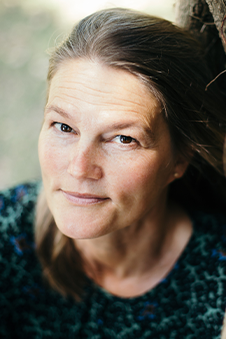
Mikaela Nyman
Mikaela Nyman is a Taranaki based writer of Finnish heritage from the Åland Islands, born into the Swedish linguistic minority. She has also lived in Vanuatu.
The poet, novelist and non-fiction writer says she’s still finding it hard to believe she’s been awarded this Fellowship.
“It means I’m going to be able to focus on a year of writing in a nurturing environment - it's a joy and a privilege, and an incredible validation for a writer.
“As writers and artists we all need to nurture our creativity, and we need to set aside time to immerse ourselves and experiment, take risks,” Nyman says.
During her Fellowship, Nyman plans to research and write her second novel, about a dysfunctional family with themes of peace, war and belonging.
She envisages this to be more experimental than her first novel Sado (2020), a climate fiction set in Vanuatu, and says “It will draw on my experience of enforced separation from my father and my native Åland Islands – autonomous and demilitarised, which are now under threat from Putin’s forces”.
Nyman also plans to collate and edit a collection of poetry by the late ni-Vanuatu writer and freedom fighter Mildred Sope, who was among the first indigenous poets to be published by Albert Wendt prior to Vanuatu’s independence in 1980. Nyman interviewed Sope for her PhD in creative writing, inter-disciplinary with Pacific Studies and went on to co-edit with Rebecca Tobo Olul-Hossen, Sista, Stanap Strong! A Vanuatu Women’s Anthology, published by Te Herenga Waka Press to critical acclaim in 2021.